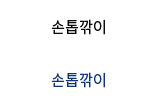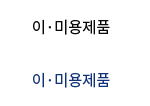Title: Keeping Loved Ones Safe: Practical Alzheimer’s Wandering Preven…
페이지 정보
작성자 Armand 댓글 0건 조회 7회 작성일 25-03-26 08:27본문
Introduction:
Memory care is a critical aspect of senior care, especially for individuals experiencing cognitive decline. Incorporating innovative exercise routines into a senior's daily activities can significantly enhance memory retention and overall cognitive function. By engaging in purposeful and stimulating exercises, seniors can unlock memories, improve mental acuity, and enjoy a better quality of life. In this article, we will explore various creative exercise routines tailored to enhance memory care in seniors, along with practical tips and real-world examples to inspire caregivers and seniors alike.
3. Encourage Social Engagement: Incorporate group activities and social interactions into cognitive therapy sessions to promote social engagement and emotional well-being. Interaction with peers can foster communication skills and provide a sense of community support.
Conclusion:
Cognitive therapy tools play a crucial role in memory care for seniors, offering various benefits for cognitive health and overall well-being. By implementing practical tips and engaging seniors in real-world examples of cognitive therapy tools, caregivers and healthcare professionals can empower seniors to maintain their cognitive abilities and lead fulfilling lives. With the right support and resources, seniors can enhance their memory, cognitive function, and quality of life through regular engagement with cognitive therapy tools.
5. Nature Walks and Outdoor Exploration:
Spending time in nature and exploring the outdoors can have a positive impact on memory and mental well-being in seniors. Taking leisurely walks in the park, gardening, birdwatching, or participating in nature-themed activities can help seniors connect with their surroundings, reduce stress, and boost memory function. Caregivers can plan outdoor excursions that provide seniors with opportunities to engage their senses and create lasting memories.
4. Provide Positive Reinforcement: Offer encouragement, praise, and positive feedback to seniors during cognitive therapy activities. Positive reinforcement can boost motivation and confidence, leading to better outcomes and increased participation.
As we age, maintaining cognitive function becomes increasingly important for overall well-being and quality of life. One effective way to support cognitive health in seniors is through memory-focused physical activity programs. These programs combine physical exercise with cognitive activities specifically designed to stimulate memory, attention, and problem-solving skills.
test
1. **Incorporate a Variety of Activities:** Include a mix of physical exercises such as walking, stretching, and strength training, along with cognitive activities like puzzles, memory games, and brain teasers.
3. Music Therapy:
Music has a powerful impact on memory and emotions, making it an excellent tool for memory care in seniors. Engaging in music therapy sessions, listening to familiar songs, or playing musical instruments can evoke memories, stimulate neural pathways, and improve cognitive function. Caregivers can create personalized playlists of nostalgic music to help seniors reconnect with past experiences and enhance memory recall.
2. **Art and Creativity Workshops**: Engaging seniors in creative arts such as painting, drawing, or crafting can be a therapeutic outlet for self-expression and emotional release. Organizing art workshops where seniors can explore different mediums and techniques can help boost their self-esteem and confidence while also stimulating their cognitive abilities.
In conclusion, innovative memory care facility activities play a vital role in enhancing the quality of life for seniors living with memory-related conditions. By incorporating a diverse range of stimulating and purposeful activities tailored to individual preferences and abilities, memory care facilities can create a nurturing and enriching environment that promotes joy, connection, and overall well-being. Remember, each senior is unique, so it's important to tailor activities to their interests and capabilities to ensure a fulfilling and rewarding experience.
Benefits of Cognitive Therapy Tools:
Cognitive therapy tools offer a range of benefits for seniors in memory care. These tools can help improve memory recall, increase cognitive function, boost confidence, and enhance overall quality of life. Through regular use of these tools, seniors can experience improved mental fitness, enhanced brain health, and increased independence in daily activities.
Conclusion:
Innovative exercise routines tailored to enhance memory Alzheimer’s Care in North Hills in seniors offer a holistic approach to promoting cognitive health and well-being. By incorporating memory-boosting workouts, brain teasers, music therapy, arts and crafts, and outdoor exploration into daily activities, caregivers can support seniors in unlocking memories, improving mental acuity, and enhancing overall quality of life. With dedication, creativity, and a personalized approach, caregivers can empower seniors to maintain and strengthen their cognitive abilities, fostering a positive and enriching experience in memory care.
Memory care is a critical aspect of senior care, especially for individuals experiencing cognitive decline. Incorporating innovative exercise routines into a senior's daily activities can significantly enhance memory retention and overall cognitive function. By engaging in purposeful and stimulating exercises, seniors can unlock memories, improve mental acuity, and enjoy a better quality of life. In this article, we will explore various creative exercise routines tailored to enhance memory care in seniors, along with practical tips and real-world examples to inspire caregivers and seniors alike.
3. Encourage Social Engagement: Incorporate group activities and social interactions into cognitive therapy sessions to promote social engagement and emotional well-being. Interaction with peers can foster communication skills and provide a sense of community support.
Conclusion:
Cognitive therapy tools play a crucial role in memory care for seniors, offering various benefits for cognitive health and overall well-being. By implementing practical tips and engaging seniors in real-world examples of cognitive therapy tools, caregivers and healthcare professionals can empower seniors to maintain their cognitive abilities and lead fulfilling lives. With the right support and resources, seniors can enhance their memory, cognitive function, and quality of life through regular engagement with cognitive therapy tools.
5. Nature Walks and Outdoor Exploration:
Spending time in nature and exploring the outdoors can have a positive impact on memory and mental well-being in seniors. Taking leisurely walks in the park, gardening, birdwatching, or participating in nature-themed activities can help seniors connect with their surroundings, reduce stress, and boost memory function. Caregivers can plan outdoor excursions that provide seniors with opportunities to engage their senses and create lasting memories.
4. Provide Positive Reinforcement: Offer encouragement, praise, and positive feedback to seniors during cognitive therapy activities. Positive reinforcement can boost motivation and confidence, leading to better outcomes and increased participation.
As we age, maintaining cognitive function becomes increasingly important for overall well-being and quality of life. One effective way to support cognitive health in seniors is through memory-focused physical activity programs. These programs combine physical exercise with cognitive activities specifically designed to stimulate memory, attention, and problem-solving skills.
test
1. **Incorporate a Variety of Activities:** Include a mix of physical exercises such as walking, stretching, and strength training, along with cognitive activities like puzzles, memory games, and brain teasers.
3. Music Therapy:
Music has a powerful impact on memory and emotions, making it an excellent tool for memory care in seniors. Engaging in music therapy sessions, listening to familiar songs, or playing musical instruments can evoke memories, stimulate neural pathways, and improve cognitive function. Caregivers can create personalized playlists of nostalgic music to help seniors reconnect with past experiences and enhance memory recall.
2. **Art and Creativity Workshops**: Engaging seniors in creative arts such as painting, drawing, or crafting can be a therapeutic outlet for self-expression and emotional release. Organizing art workshops where seniors can explore different mediums and techniques can help boost their self-esteem and confidence while also stimulating their cognitive abilities.
In conclusion, innovative memory care facility activities play a vital role in enhancing the quality of life for seniors living with memory-related conditions. By incorporating a diverse range of stimulating and purposeful activities tailored to individual preferences and abilities, memory care facilities can create a nurturing and enriching environment that promotes joy, connection, and overall well-being. Remember, each senior is unique, so it's important to tailor activities to their interests and capabilities to ensure a fulfilling and rewarding experience.
Benefits of Cognitive Therapy Tools:
Cognitive therapy tools offer a range of benefits for seniors in memory care. These tools can help improve memory recall, increase cognitive function, boost confidence, and enhance overall quality of life. Through regular use of these tools, seniors can experience improved mental fitness, enhanced brain health, and increased independence in daily activities.
Conclusion:
Innovative exercise routines tailored to enhance memory Alzheimer’s Care in North Hills in seniors offer a holistic approach to promoting cognitive health and well-being. By incorporating memory-boosting workouts, brain teasers, music therapy, arts and crafts, and outdoor exploration into daily activities, caregivers can support seniors in unlocking memories, improving mental acuity, and enhancing overall quality of life. With dedication, creativity, and a personalized approach, caregivers can empower seniors to maintain and strengthen their cognitive abilities, fostering a positive and enriching experience in memory care.
댓글목록
등록된 댓글이 없습니다.






